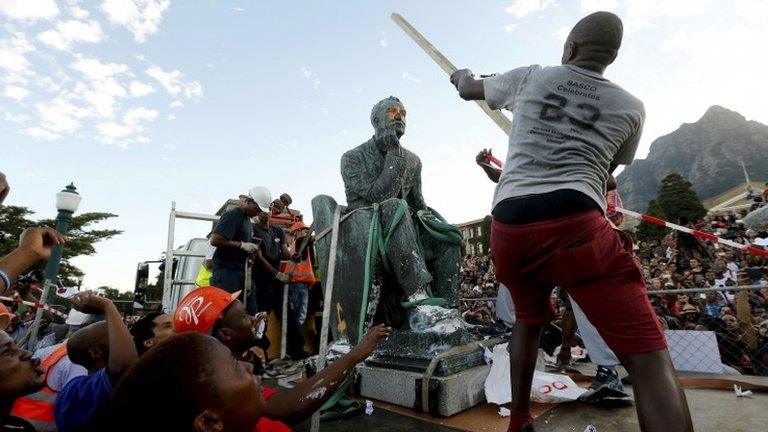Lord Amherst smallpox controversy: Will Guernsey follow Massachusetts' lead?
- Published
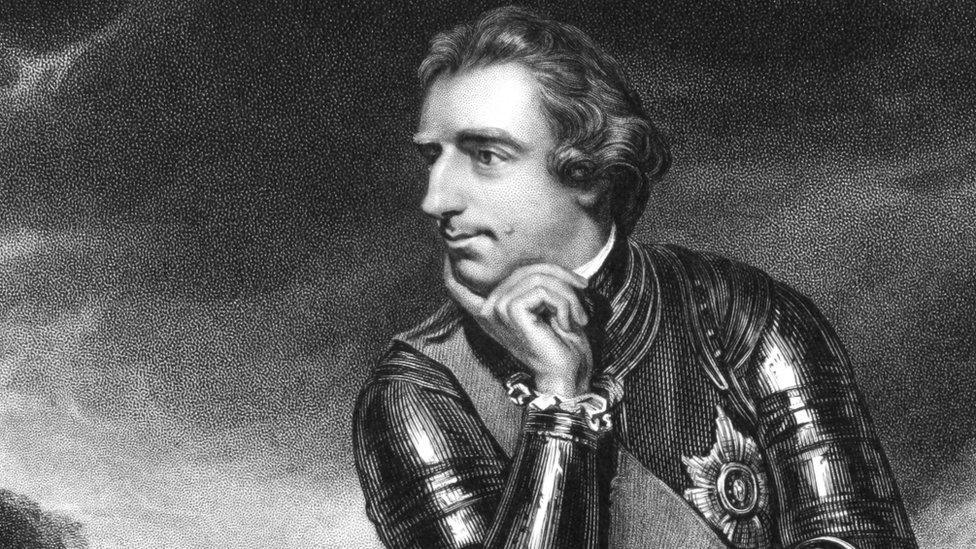
Jeffery Amherst was Governor of Guernsey from 1770 to 1794, an office that was abolished in 1835
Lord Jeffery Amherst, an 18th Century British general, is one of the figures at the centre of a global debate on the legacy of colonialism.
One of the highest ranking military officials of his time, more than 30 places around the world now bear his name.
In Guernsey, where he was governor for 24 years, a school, a road and a former hospital were named after him.
However, in the US Lord Amherst has become a dubious figure because of his connection with biological warfare.
Earlier this year students at liberal arts institution Amherst College, Massachusetts, voted to remove 'Lord Jeff' as their unofficial mascot in light of accusations he approved the wiping out of Native Americans by deliberately giving them smallpox via infected blankets.

Who was Jeffery Amherst, 1st Baron Amherst?
Born in Sevenoaks, Kent in 1717 and died at his home, Montreal Residence, in 1797
Served as an aide-de-camp to General John Ligonier (a former Governor of Guernsey) during the Jacobite Rebellion
Commander-in-chief in north America during the French and Indian War
Led the siege of Louisbourg and the capture of Montreal
Became a member of King George III's Privy Council
Made Governor of Guernsey in 1770 and retired in 1794, leaving Guernsey without a governor until 1797
He was made field marshal - the highest army rank - in 1796

As the commander-in-chief of the British army in pre-independence north America, Jeffery Amherst is said to have "both despised and hated his enemy" according to the historian Henry Morse Stephens.
In a postscript to a fellow British officer Henry Bouquet, he appears to have written: "You will do well to try to inoculate the Indians by means of blankets, as well as to try every other method that can serve to extirpate this execrable race.
"I should be very glad your scheme for hunting them down by dogs could take effect, but England is at too great a distance to think of that at present."
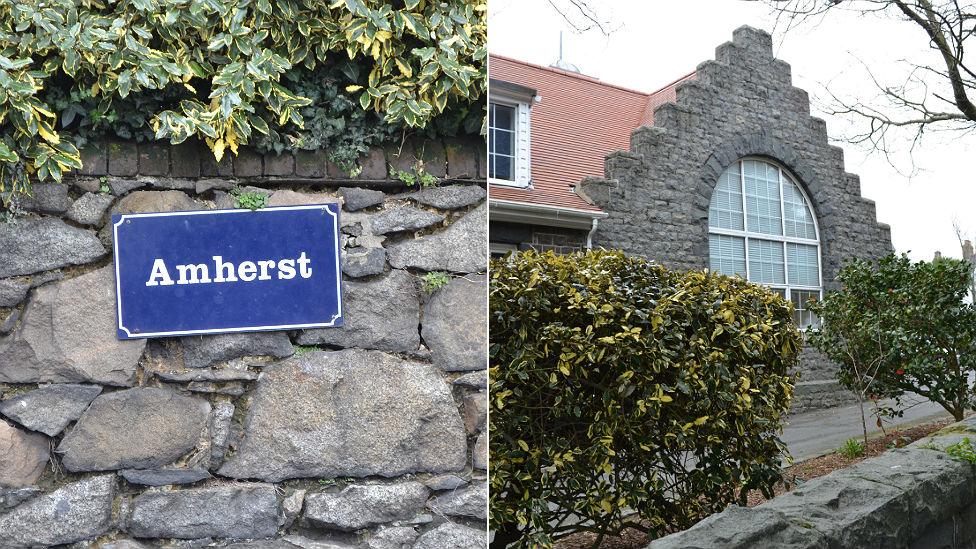
Amherst Road and Amherst Primary School in Guernsey are named after the British general, but his name has become associated with dubious methods of warfare
Other higher education institutions including the University of Cape Town and Oxford University have faced student protests because of their association with another colonial figure, the British imperialist Cecil Rhodes. The 'Rhodes Must Fall' campaign led to UCT removing a statue of the 19th Century politician.
Professor Elizabeth Fenn, an historian at the University of Colorado, who researched the Amherst smallpox incident told the BBC: "I am relieved and delighted to see the wholehearted rejection of Jeffery Amherst.
"He advocated genocide, the 'total extirpation' of native peoples. The question we should ask is why did it take us so long?"
In Montreal more than 6,500 people signed an online petition, external to rename the city's Amherst Street after a former Premier of Quebec Jacques Parizeau, who died in 2015. The campaign, launched that year, continues.
Some researchers have argued that the British general deserves an honourable position in history for his personal achievements, one of which was the capture of Montreal in 1760.
Legacy in Guernsey
Morse Stephens wrote: "Though not a great man... his personal qualities were undeniable, and he could not have been an ordinary man to have risen from page to Duke of Dorset to be field-marshal commanding-in-chief."
Whether Sir Jeffery Amherst ever visited Guernsey during his time as governor of the island is not known, but his legacy lives on today in several places; Amherst Primary School, Amherst Road and the Amherst Room at Castle Cornet. There was an Amherst Maternity Hospital in St Peter Port but the site was redeveloped for housing.
Local historian, Colonel Richard Graham, said that Lord Amherst had been viewed as a national hero "in whose reflected glory Guernsey bathed over the 24 years of his time in office".
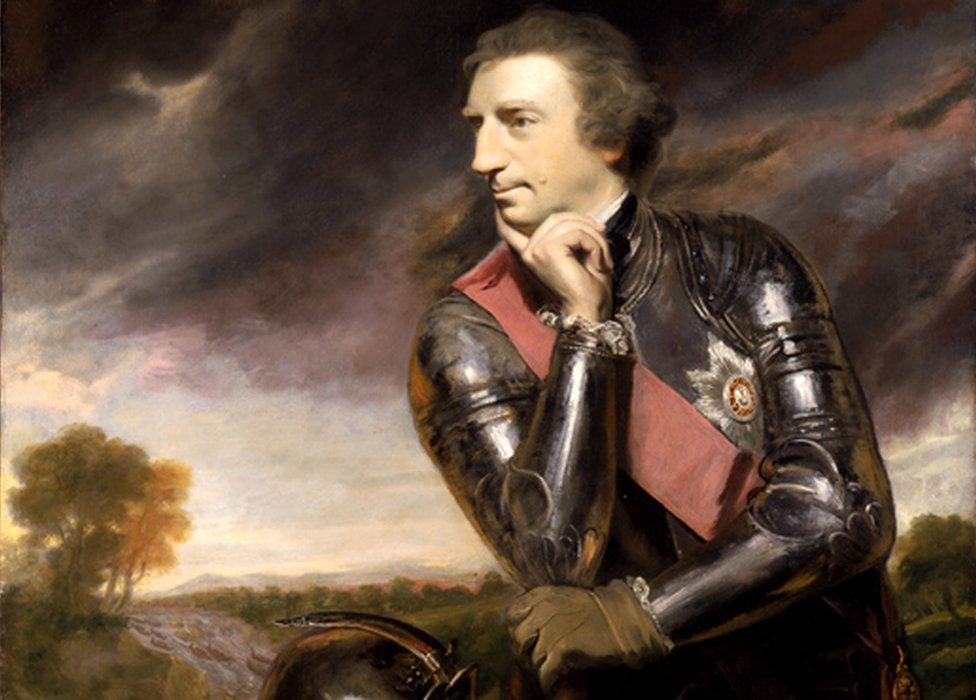
Historians today have opposing views on the rejection of Lord Amherst
So have recent events overseas had any bearing on the general's reputation in Guernsey?
Mr Graham said historical figures like Jeffery Amherst should be judged by the standards of their time.
"I believe strongly that they should be judged and accepted by the mores of the time they lived rather than by ours.
"In a hundred years' time, our actions will be similarly scrutinised and there will be some judgemental souls who will see evil in stuff we currently regard as harmless.
"That is not to say that hideous conduct as seen in the evils of Hitler, Stalin and Pol Pot are any the less hideous for having taken place when they did and within the world as it was.
"But even these abominations need to be explained and understood as if from their time if the appropriate lessons are to be drawn from history."
The island's Education Department and a St Peter Port Parish official told the BBC that no one had approached them about renaming local places called Amherst.
- Published9 March 2016
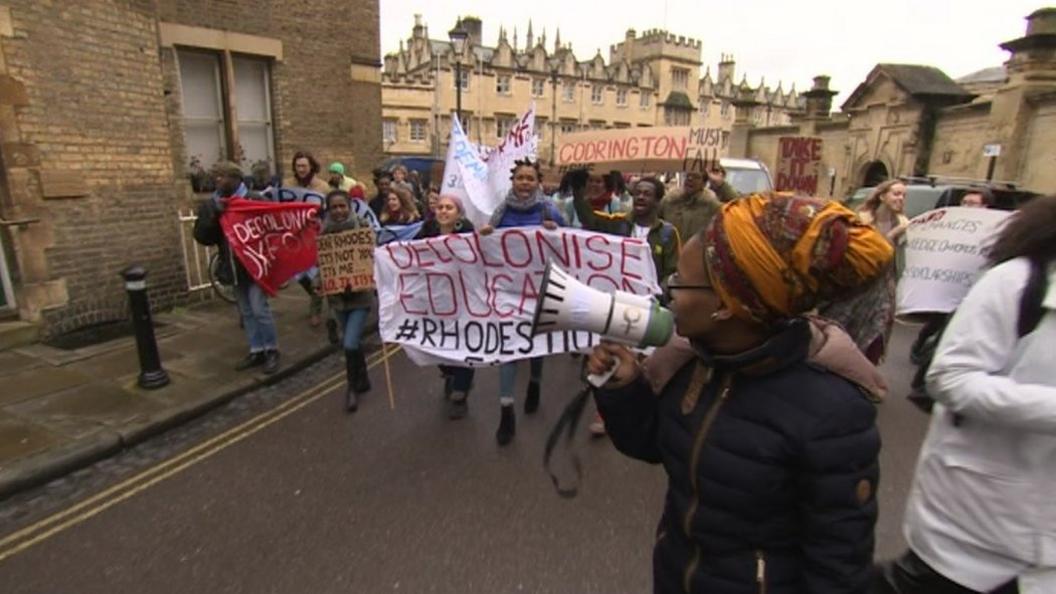
- Published29 January 2016
- Published25 February 2016
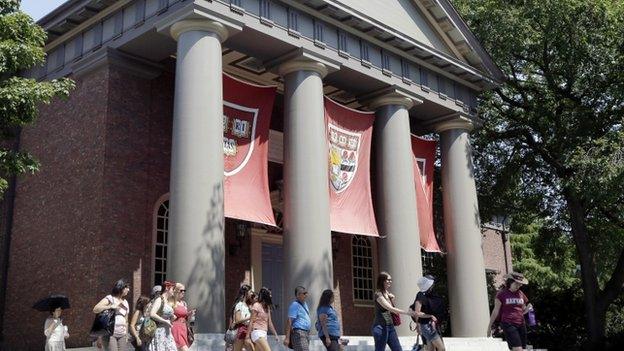
- Published29 January 2016
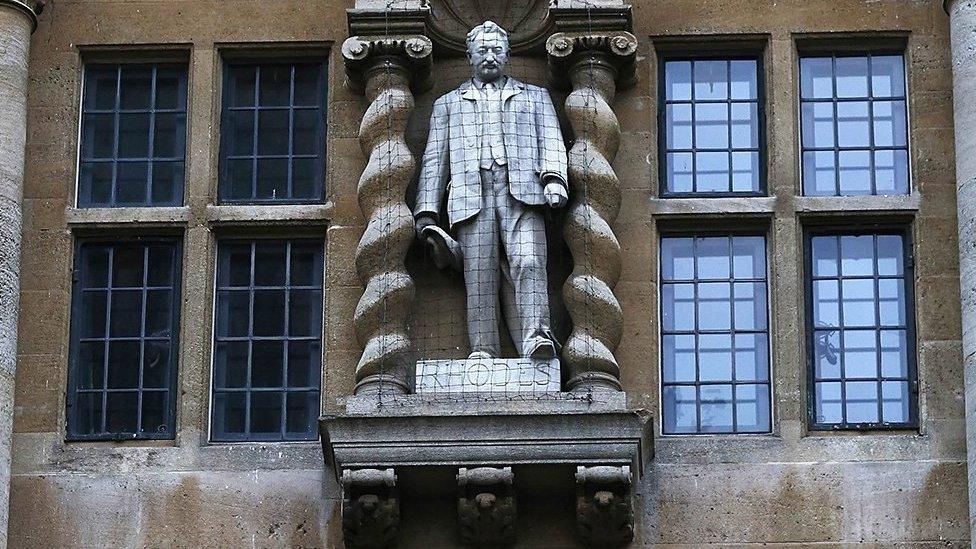
- Published18 November 2015
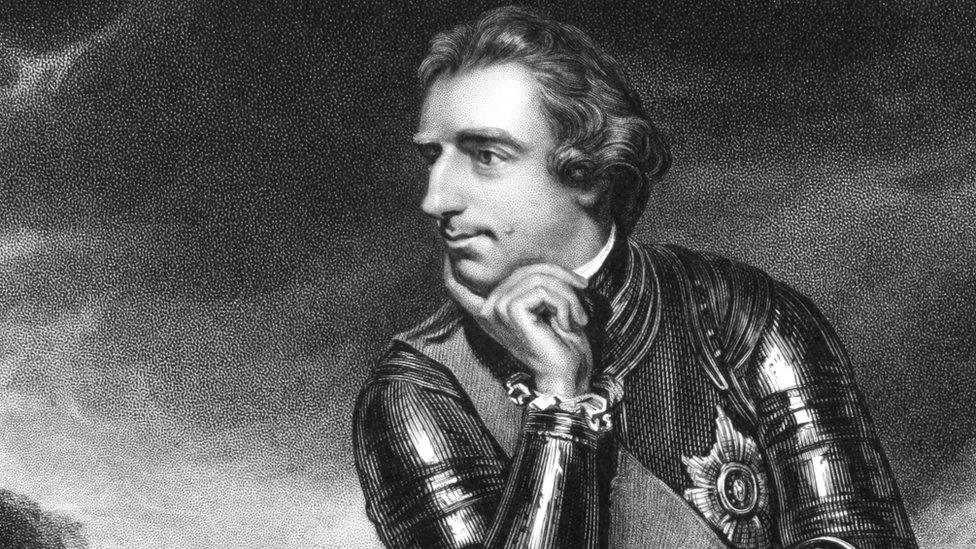
- Published12 November 2015
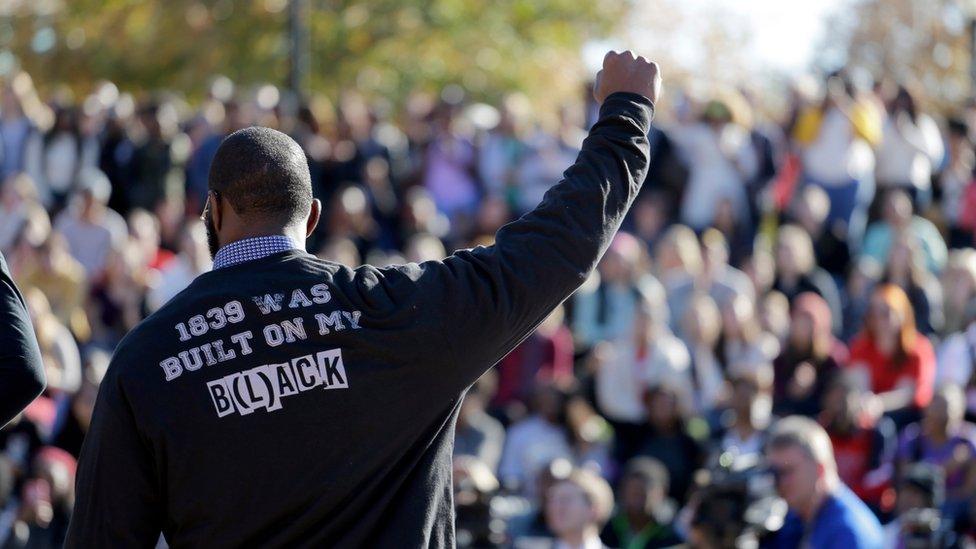
- Published9 April 2015
